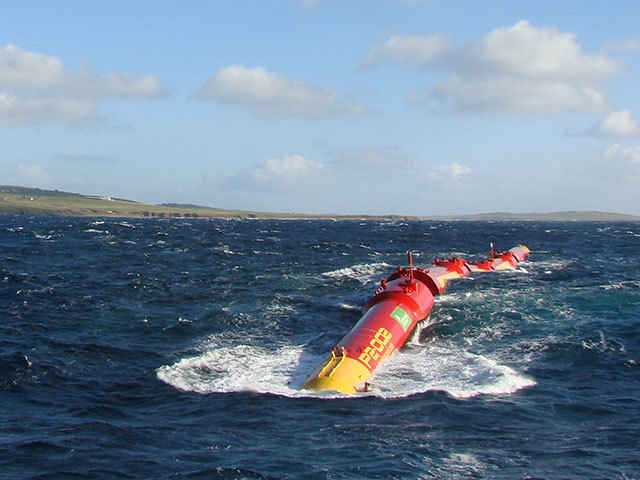
The main advisory body for the marine energy industry has called for a rethink of the way government funding is dished out to the struggling wave and tidal sector.
In a new report, the Marine Energy Programme Board (MEPB) stressed the need for sustained financial support to commercialise the sector, as well as a “joint vision” of the industry’s future.
The industry, which employs about 1,700 people, has suffered numerous setbacks in recent months.
In December, Edinburgh-based Aquamarine Power said it would “downsize” its business after posting losses of £16.5million for the year to March 31, and a month earlier wave-power firm Pelamis went into administration after failing to secure enough funding for research and development.
The MEPB’s Capitalising on Capability report – which was unveiled today at RenewableUK’s Wave and Tidal 2015 conference in Edinburgh – says that despite the recent blows, the industry has “enormous potential” and could support up to 20,000 jobs in the next decade.
It also says that British companies are in a good position to capture £76billion of the global market by 2050, adding as much as £4billion to UK GDP.
The MEPB points out that the industry is still producing success stories, for example, the installation of a community-owned tidal turbine off Shetland, which started exporting electricity to the local grid last year and is being lauded as a world first.
The 20 marine energy companies surveyed for the report by industry body RenewableUK said they had received just £1 of public funding for every £7 of privately sourced money they spent in the supply chain.
But without a unified government approach and a well-funded commercial strategy, it is impossible to secure the amount of private investment needed to run small pilot projects, the report warned.
Dee Nunn, wave and tidal development manager at RenewableUK, said the UK could “secure its position at the forefront of the global marine energy sector” if the report’s recommendations were put in motion.
She said: “The measures being put forward would enable the industry to capitalise on the excellent resource and test facilities we already have in the UK to move the technologies to a commercial position.”
The new approach would also help secure project financing for at least three pilot tidal arrays on UK waters by 2018, and the first wave arrays at facilities like the European Marine Energy Centre (Emec) off Orkney, which was set up in 2003 to test wave and tidal power devices.
Recommended for you
